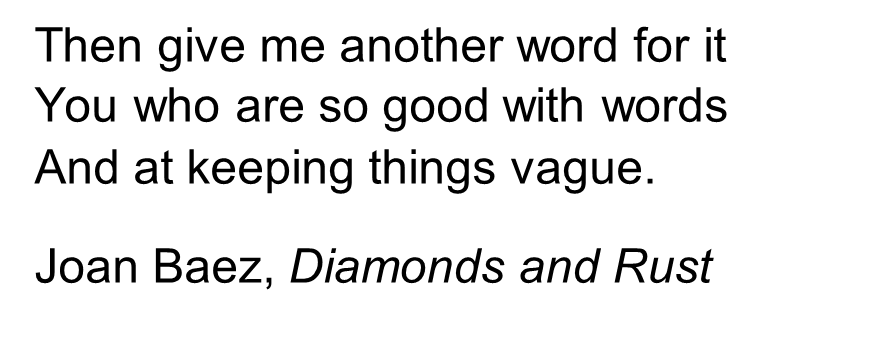
The history of knowledge is a quickly evolving field. As usual, many questions concerning the novelties, background, and prospects of the new field have arisen. Often the set of questions is impossible to answer. On the one hand, all sound historiography must stem from previous historiography and its results. On the other hand, the history of knowledge has been accused of not providing any real novelties. In what follows, I analyze this tension.
It is certainly true that knowledge has always been at the heart of the historiographical inquiry. Historiography explains human actions and activities, and in order to understand them, we have to understand, the values, needs, desires, worldviews, beliefs, and knowledge behind the actions and activities.
In order to understand the possible novelties in the history of knowledge, we have to distinguish explanans (that which explains) and explanandum (that which requires an explanation). Given what we noticed above, knowledge has served as an explanans in historiography. Moreover, in many cases, the knowledge of the actors has been treated as a transparent and part of the historical situation that does not require much attention. There usually are no detailed analyses in historiographical materials on the mechanisms of knowledge creation and circulation in the society of the actors.[1] And this is how it is supposed to be: if we explain X (an action) by citing Y (knowledge), we have explained X even if we do not provide further explanation for Y. However, knowledge as an explanans is a very different thing than knowledge as an explanandum. When we treat knowledge as an explanandum, we demand an explanation for what, why, and how something is known and why some claims have been treated as knowledge while others have not.
The novelty of the history of knowledge is that it treats knowledge as an explanandum and demands explanation for knowledge.
This also explains the close relationship between the history of science and the history of knowledge. It has been argued many times (see Virmajoki 2019) that the history of science drifted into trouble when it became obvious that the historical development of science cannot be separated from the history of other forms of knowledge and thus the concept of science is historiographically problematic. This painful historiographical breakthrough forced the conclusion that the historiography of science must turn to the history of knowledge. However, this narrative is not the whole truth. It only explains why certain forms of knowledge (used in specific historical contexts) that are connected to the historical development of science have gained attention. It does not explain why the history of knowledge, in general, has gained attention, even in cases that have little to do with the history of science.
A complementary explanation for the rise of the history of knowledge can be achieved by looking at the development from presentist and internalist historiography of science to the historiographical breakthrough that we called “painful” above. The special status of the history of science and its original ability to treat knowledge as an explanandum stemmed from the special status of science itself and the perceived greatness of science. For example, George Sarton argued that “the acquisition and systematization of positive knowledge are the only human activities which are truly cumulative and progressive”. Given the special status of science and its accomplishments, the question “How is science possible?” required an answer. A form of knowledge became an important historical explanandum. However, when the idea of the unity of science was scattered in the historiographical developments of the 20th century, also knowledge as an explanandum scattered. It is one thing to ask how Boyle convinced his contemporaries on the merits of the experiments; it is another thing to ask what role experimental considerations played in T. H. Morgan’s thinking – different context, different explanations required. Moreover, once it became clear that the historical origins of science are in multiple different forms of knowledge, the need to explain (i.e., to set as explananda) many different forms of knowledge became evident. One mystery, how science is possible, became many mysteries.
In this way, we can understand how the history of knowledge stems from previous research where knowledge, beliefs, and worldviews became treated as explananda. The history of knowledge builds on previous historiographical developments and results and is, therefore, justified as a natural step in historiography. At the same time, the history of knowledge goes beyond its epistemic roots by generalizing the demand for explanation to almost all knowledge. Not only are grand schemas of knowledge, like science or ideology, interesting. Also, many other and perhaps more ordinary pieces of knowledge and ways of knowing demand explanation.
We think we know why we know. But we really don’t. That is the main premise of the history of knowledge.
Finally, notice that once we set knowledge as an explanandum, we will understand many situations involving knowledge in a new light. Given that knowledge is an important explanatory factor, the history of knowledge also forces us to rethink the received historical explanantia. What we have taken as transparent factors in a historical situation might turn out to be quite complex. However, the analysis of the exact prospects of this part of the history of knowledge will have to wait for another writing.
References:
Please ask for reference if something is of interest here…
[1] Of course, there are sketches of who informed the actor and how the actor reasoned; however, these are far from the nuanced accounts provided in the field called historiography of knowledge.